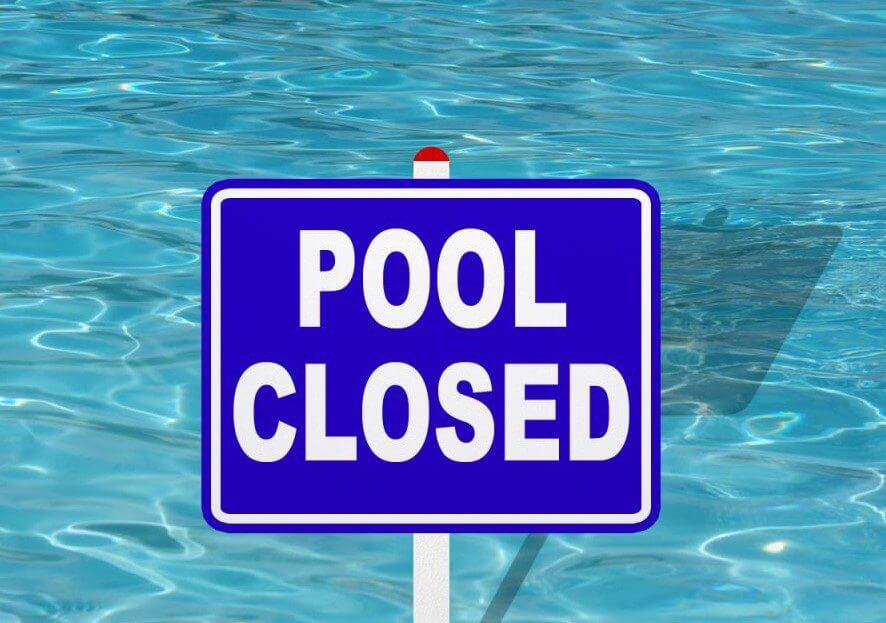An Inside Look From College Swimmers on the Impact of a Closing Program

An Inside Look From College Swimmers on the Impact of a Closing Program
For different reasons, some swimming college programs have been discontinued, with the decision affecting swimmers around the country.
Most swimmers enter their first year of college expecting to stay at the school for the rest of their undergraduate degree. However, some swimmers have had to face the unfortunate situation when a university cuts the swimming program for several reasons. Before COVID-19, several programs were cut or on the chopping block. After the pandemic in 2020, this scenario became a more familiar and notable situation.
Universities such as Dartmouth, Tiffin, UMass-Dartmouth, Urbana, Iowa, Michigan State and more decided to cut their swimming programs after the pandemic. As a result, hundreds of swimmers were and are still affected by these decisions.
Why?
Most college program cuts have nothing to do with winning or recruiting. It is not about failing school pride. Some programs that have been cut have produced conference champions, Olympians and All-Americans. Simply, it all comes down to money. Budget limitation is one of the most recurring reasons for cuts. Following the Coronavirus, and its economic impact, finances became a major concern and, in some instances, led to program eliminations.
Program funding isn’t the sole reason. Occasionally, programs are cut because of lackluster facilities and the way a subpar environment can hamper competitiveness.
The Effect on Athletes
Once college swimmers learn of the elimination of their program, a challenge presents itself. Transferring credits from one university to another isn’t easy, and swimmers must find a new program that fits their needs in a tight timeframe. Depending when a program cut is announced, other schools may not have roster spots or scholarship money available.
Mental health also plays a significant role in the picture. For a freshman who is just 18 years old and living the college experience for the first time, it can be devastating to hear this news. For a senior who is about to finish an undergrad degree, he/she must make a 180-degree change in life. Uncertainty can affect the mental health of swimmers, and performances.
Swimmers Facing Adversity
“I was new in the U.S, and I didn’t even imagine that something like this could happen,” said Marco Alvarez in an interview with Swimming World. “The worst part was that they told us about it in May (three months before the season started), and rosters are usually full by that time.”
Alvarez was born and raised in Malaga, Spain, is a three-time Spanish champion in the 100 butterfly and graduated from Loyola University in New Orleans. Alvarez experienced not one, but two program cuts, during his career. Alvarez signed with Limestone College back in 2018. However, after he started feeling comfortable at the school, he received the news that the swimming program was closing its doors.
“It was a huge shock,” Alvarez said. “They gathered the team in a room and told us that the facilities were not in good condition and there was no money for new facilities.”
Alvarez started looking desperately for new universities where he could fit in. He sent more than 300 emails to coaches, hoping to find a program that could make it affordable for him to stay in the U.S.
A Cycle That Never Seems to End
Barton Community College offered Alvarez a scholarship, so he decided to transfer. Alvarez knew he could only stay there for one year and then needed to transfer again. After his time at Barton, Alvarez continued his degree at Tiffin College, with the assurance that he would stay there and finish his degree. He was not expecting the pandemic, which played against him another time. Tiffin College decided to shut down the swimming program after COVID-19.
“I could not believe it since this was happening to me for the second time, and I would have to transfer once again to a fourth university,” he said.
Alvarez again went on the hunt and found Loyola University in New Orleans. He committed to Loyola and graduated in May 2022.
“When a door closes, another one opens, and I think it is key to see obstacles as an opportunity to grow and succeed,” Alvarez said.
The Uncertainty Won’t Last Forever
“I remember I was very upset because they let us know the program was shutting down in late May,” Miguel Arroyo said.
Arroyo was born in Sevilla, Spain. A finalist at the Spanish Championships in the 100 and 200 butterfly, he graduated from California Baptist University. Arroyo was part of the Tiffin University swimming program, too. After he received the news that the program was getting cut, he had to start looking immediately for new options.
“My family could not afford to pay a lot of money,” Arroyo said.
Full of fear and uncertainty, he decided he wanted to keep studying and swimming in the U.S. Nonetheless, he faced the same problem most athletes who have been in this position struggle with: Time and money. Arroyo ended up transferring to California Baptist University and graduating from CBU.
“The process of transferring was tough,” Alvarez said. “I remember spending eight hours on my computer looking for a new swim program.”
Arroyo transferred to St. Thomas University after graduating from CBU to use his fifth year. He is also an assistant coach for the swimming program.
“I fought for what I deserved,” he said. “I was in love with swimming. Follow your dreams and be persistent, and one day everything will pay off.”



